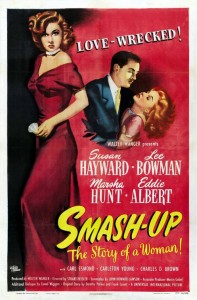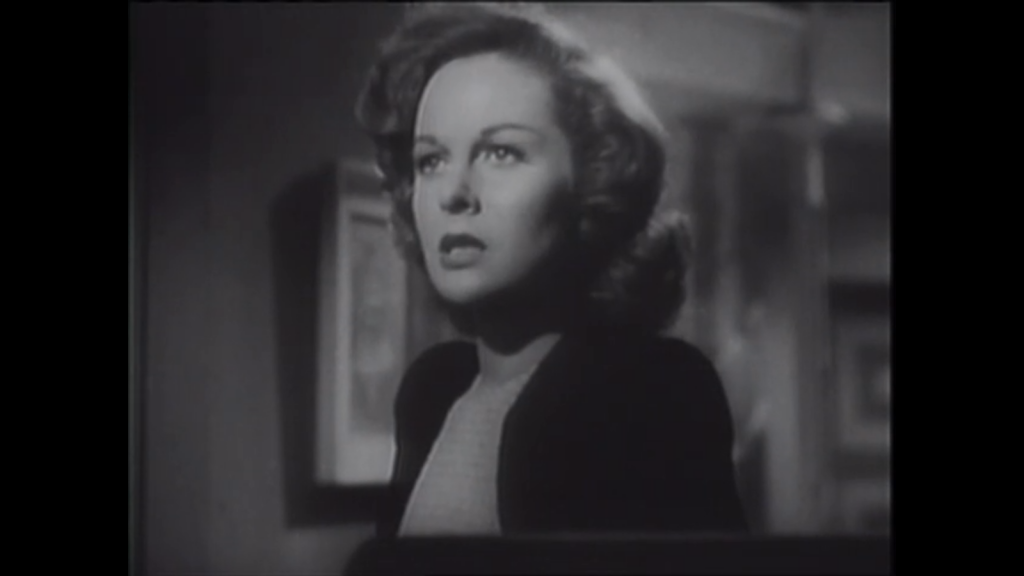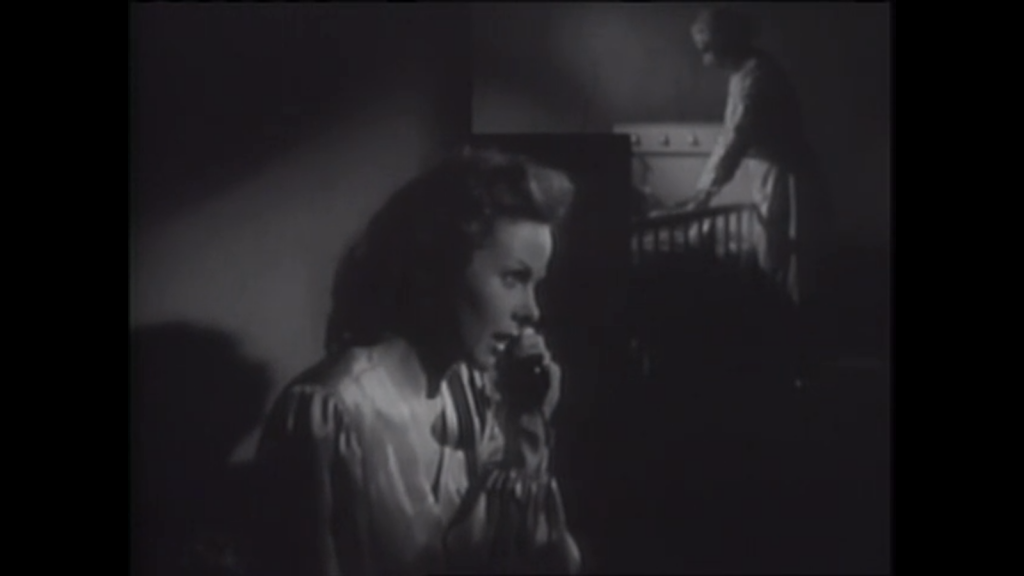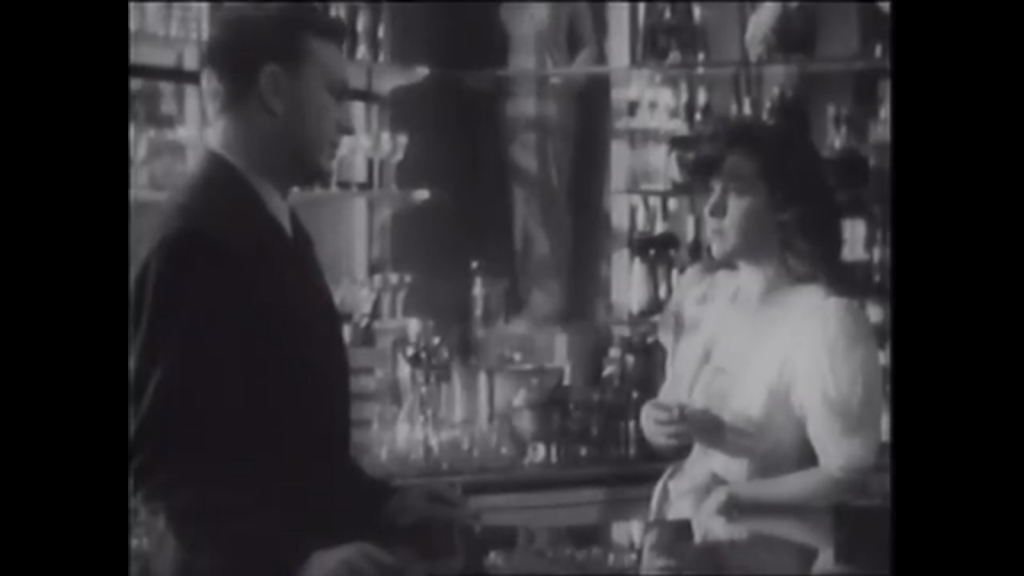Smash-Up: The Story of a Woman (1947)
[Note: The following review is of a non-Peary title; click here to read more.]
“I can’t keep her away from the stuff if she’s determined to get at it!”
|
Synopsis: |
|
Genres, Themes, Actors, and Directors:
Review: Bolstered by a brave, nuanced, and sympathetic central performance by Hayward, the Oscar-nominated script manages to portray the insidious effects of alcoholism (still a mostly misunderstood disease at the time) within the context of a woman who is subconsciously devastated by the “need” to give up her own career for the presumed ideal of marriage and motherhood. Despite the overly simplistic rationale provided for why Hayward drinks too much (while she once drank for courage on stage, she’s soon drinking to assuage her increasing feelings of jealousy and inadequacy), it’s nonetheless impressive to watch a film about marital dysfunction in which neither party is truly to blame. Knowing as we do now that alcoholism is an addiction, it’s painful to watch Bowman treating Hayward with such disdain late in their marriage — but his actions and attitude are somewhat understandable, given that she really does make a mess of things. We are genuinely rooting for both these individuals throughout the entire film — a rare and worthy feat for a movie of this kind. Redeeming Qualities and Moments:
Must See? Categories
Links: |




One thought on “Smash-Up: The Story of a Woman (1947)”
First viewing. A tentative once-must, for its place in cinema history.
The remarks above are well-taken and some seem accurate – still, I couldn’t help bur find a few points in the script awkward and a bit implausible.
Hayward plays a modern, sophisticated and talented urban woman. It seems less believable (since she and her husband live in New York City) that she would feel compelled to resign herself to being just a mother or that her husband would expect that of her (considering they are both in the arts).
The two are madly in love at the beginning of the film – so it strains credulity when we begin to notice her husband pulling away from her; mainly because his sudden fame (which is somewhat due to her) does not curtail his desire for her. We see that he’s not drawn to the company of other women. So why does he gradually drift into being totally non-supportive emotionally? (Admittedly, part of that could be due to his own lack of understanding when it comes to handling an alcoholic – but still…)
It’s not a small point that Bowman and his writing/performing partner (Eddie Albert) stop writing their own material even as they continue being successful with their club act. That just wouldn’t happen to songwriting teams who were that successful.
Hayward’s performance is commendable – and it’s easy to see why her fans (apparently) love her in this film; she certainly gives it her all. Unfortunately, whatever is in her character that makes her a fleshed-out human sort of gets tossed out early on in the film. This leaves Hayward with one note to play through most of the film: loneliness. She spends about 95% of the film either talking about drinking or just drinking. We don’t see much of a person, so Hayward sadly reads as sort of a non-entity. She doesn’t even (at least) get a speech which addresses that.
Unlike Marsha Hunt (as Hayward’s so-called nemesis). Hunt’s role, though small, is written surprisingly well and she plays it with appropriate diplomacy. *She* gets a speech – which is actually my favorite scene in the film – in which she perfectly articulates what it’s like being ‘the other woman’ without actually having the sex that would typically go with the title.
Things become a bit unintentionally funny as the film reaches its conclusion. A doctor ends up having to explain to Bowman that his wife is very much in need of him and he claims to not have been aware of that. Yet, previously, Albert had already made Bowman aware of that – and so did Hayward, directly!
It’s not a terrible film by any means – it just feels clumsy in several significant places. The specifics of the drama are handled in a slapdash manner.